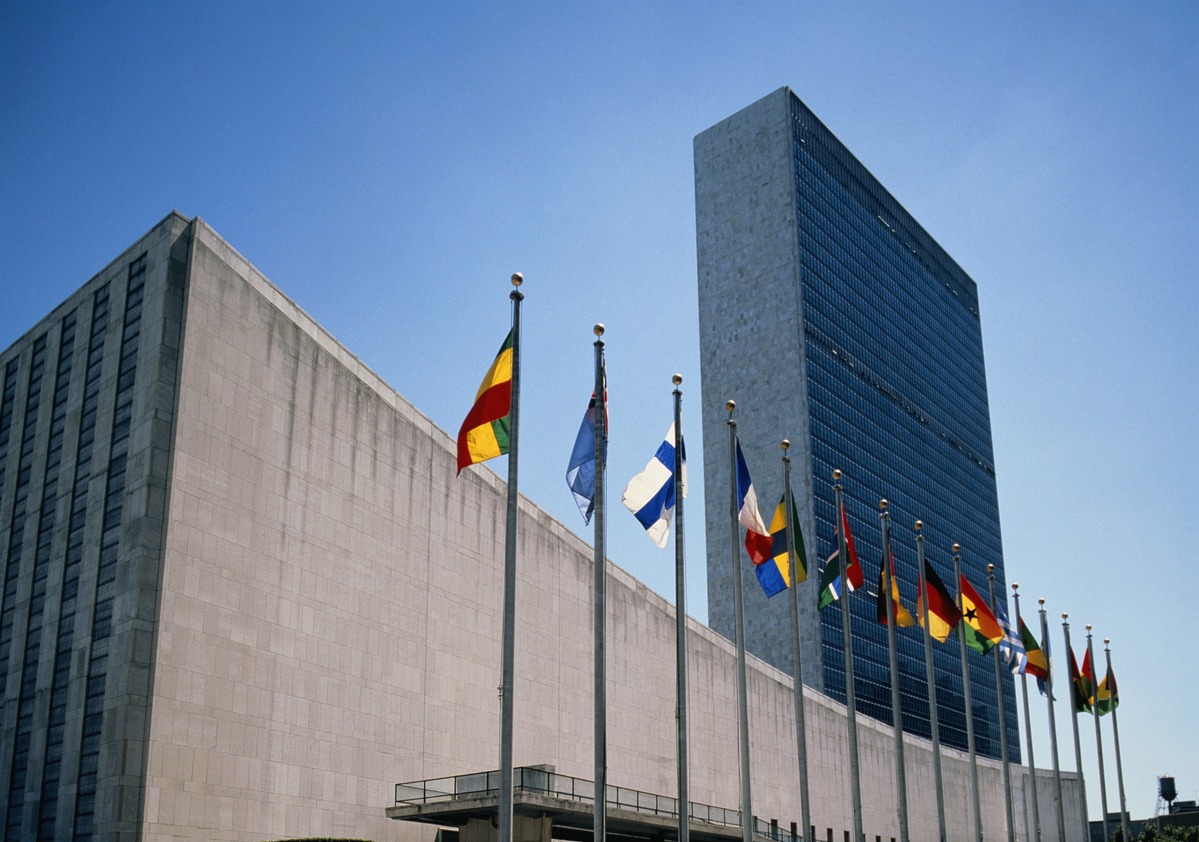Chinese UN envoy: Post-conflict countries need special help
By LIU YINMENG in Los Angeles | chinadaily.com.cn | Updated: 2021-09-09 03:35

"The transition from peacekeeping to peacebuilding is the key to national reconstruction" for countries emerging from conflict, a Chinese envoy to the United Nations told diplomats Wednesday at a Security Council ministerial open debate on peacekeeping and UN transitions.
Countries emerging from conflict often see their infrastructure in ruins but also need to work on securing peace, said Dai Bing, charge d'affaires of China's permanent mission to the UN.
However, post-conflict countries, due to their vulnerability and fragility, are hardly capable of independent development during that transitional phase, the envoy said. The UN and the international community therefore should take the responsibility to provide targeted support to those countries, so as to improve their self-driven development capability, he added.
Political and social stability hinge on steady economic development, Dai said. The transition strategy of peacekeeping operations (PKOs) should prioritize such key sectors as infrastructure, agriculture, resources utilization, accessibility of education and poverty eradication, among others, which are "all important conditions for the long-term peace and stability of the country", he noted.
"What transpired recently in Afghanistan is proof that the 'democratic transformation' imposed from the outside will inevitably end in failure," Dai said.
The envoy stressed that the international community and the UN should "identify lessons learned" from experiences in Afghanistan and continue to provide "effective and strong support" to post-conflict countries such as Afghanistan in their reconstruction efforts.
Dai also underscored the importance to persist in formulating transition strategies that are "in line with local conditions".
Post-conflict transition involves the rebuilding of state institutions, national reconciliation and security sector reform, he said. Those are all related to national sovereignty and cannot be separated from the specific political, economic and cultural conditions of countries concerned.
"In designing the transition plan of the UN PKOs, we should fully heed and respect the wishes of the country so as to ensure convergence and complementarity with the national development strategies and priorities independently formulated and determined by the countries themselves," he said.
"It is also essential to make timely adjustments in light of the evolving situation on the ground in these countries," he added.
The envoy pointed out that it is "disappointing" that after the UN has organized and dispatched several missions in the past 30 years in Haiti and made significant investment, "a large number of problems pertaining to state governance" still remain.
The existing model for Haiti is unsustainable, he said, adding that "the Haitian government should shoulder the responsibilities and tackle these problems independently".
Dai said the overall planning of PKOs must be optimized. He stressed that, "PKOs should always follow the political goals, and on the basis of the evolution of the situation, make timely adjustments in terms of the scope of mandates and prioritization."
Protection of civilians, protection of human rights and transitional justice are all means to serve the political process, the envoy pointed out. They cannot replace the political process itself.
At the early stage of peacekeeping deployment, the Security Council should incorporate relevant ideas of peacebuilding and strive to lay the foundations for the long-term peace and stability in the countries concerned, Dai said.
As the situation gradually stabilizes, a clear and feasible exit strategy needs to be formulated, as that is an important element in promoting a smooth transition, he said.
The UN has success stories in Timor-Leste, Sierra Leone, Cote d'Ivoire and Liberia. It should make good use of "such positive experiences" and promote their application proactively, he added.
Dai noted that for many years, China has actively supported post-conflict countries, especially developing countries, and helped them improve their independent development capacity.
The China-UN Peace and Development Fund also has actively supported relevant countries in undertaking cooperation projects in counterterrorism, peacekeeping, good offices and mediation, and sustainable development.
"China stands ready to work with the international community to continue its positive contribution in helping post-conflict countries achieve lasting peace and sustainable development," Dai said.
























